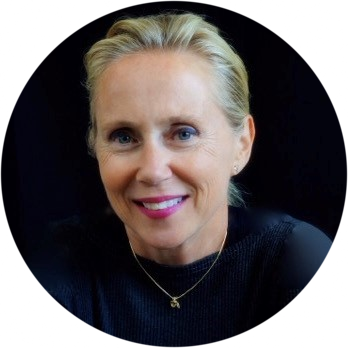Coping with COVID, the 9/11 of this generation

Trisha de Borchgrave, Senior Associate
Global Women Leaders Strategic Philanthropy
While I’ll always remember the innocence lost after 9/11, the younger generations will be experiencing the same anguish.
Managing today’s COVID-19 pandemic is turning into one of the biggest tests of human resilience many have ever experienced.
Mothers are straining under the challenge, particularly front-line healthcare workers who are having to negotiate the trade-offs between their professional commitments and the wellbeing of their children.
And mothers everywhere are having to broaden their role to include homeschooler, entertainment officer, canteen provider, and cleaner; undergoing a time of transformation, like Cinderella in reverse.
As one young working mother confined to home exclaimed; “I am going crazy!” To which her two and half-year-old replied: “And where am I going?”
COVID’s global pause button will be a defining moment for parents of young children; equally it will be a defining childhood memory for future adults, and perhaps a mirror to their own parenting skills and strength of character to come.
Our kids were eight and four when we lived in Washington D.C. and two highjacked planes slammed into New York’s twin towers. As the third plane hit the Pentagon on that crisp, crystal-blue morning of September 11, parents raced to get their kids out of school, knowing that a fourth plane was most likely heading for the White House or the Capitol building. (The plane crashed over Pennsylvania thanks to the heroic self-sacrifice of passengers who wrestled with the terrorists in the cockpit).
Washington DC is a small city of just over 600,000, with millions more living in the surrounding states of Maryland and Virginia.
But the instinctive response from mothers and fathers that day living in the geographical pinprick of America’s capital was to be with their children, even if that meant a fast-approaching plane crashing a mile off course into a long line of cars laden with parents and kids snaking along a tree-lined school-run.
Over the next few months, Washington’s obsessive inside-the-beltway, political silo filled with the hot breath of analysis as to the why’s, where’s and what-next’s of the George W Bush administration.
It was a scary period of existential uncertainty.
A week after 9/11, with the country under a full-blown terrorist high alert, biological bomblets of anthrax powder turned up in letters addressed to Congress representatives and media companies, killing or infecting those who came into contact with the envelopes.
Two postal workers died of anthrax inhalation at our local sorting depot. With little or no idea as to the source and culprit, we left
our then still voluminous snail mail to languish outside the front stoop for most of the rest of the year.
And just a year after 9/11 and the anthrax scare, in a still palpably fragile state, we were besieged again when a lunatic sniper began randomly picking off innocent individuals in the middle of our streets. Sixteen people were killed or left hideously injured while carrying out everyday activities – loading shopping into the car, filling up with petrol or being dropped off at school.
A massive manhunt with a three-state lockdown ensued. All parks and playgrounds were closed and after-school activities cancelled, as leafy surroundings of suburban tranquility became potential death traps.
Police officers escorted children in and out of darkened classrooms with papered-over windows. Tarpaulins hung over petrol stations, and authorities advised people to zig-zag on the street and to avoid standing anywhere outside, including one’s garden, or within view from one’s own window.
2001-2002 was a period of constant anxiety; it felt interminably long. Lying in bed one night, my eight-year-old asked me quietly if bullets could pass through her bedroom wall. Something seemed to have intrinsically changed; we would never go back to life as it was before.
In the stillness of uncertainty, life became about simple pleasures. Sheltering together at home, we painted, built stuff, cooked and cuddled, read stories, danced to Britney, got bored and watched too much television.
But our children remember it largely as a time like any other, and of no unusual significance. And, by Halloween 2002, we were back trick-or-treating in our neighbourhood. The immediate danger was over, though fears about terrorism and greater geopolitical insecurity never left.
Similarly, life will not go back to its pre-COVID innocence. Today’s anxiety over the pandemic will continue to wax and wane, and parenting may be more demanding than ever, exacerbated by a new fear of seasonal viruses and their accompanying economic disruption.
Surrendering to the role of kid-comptroller frees the mind from fighting the inconveniences of having to distract one’s children. It opens up pathways to a sustained and rewarding level of interaction with them. At the very least it earns every parent the guilt-free right to define their own balance between work and leisure that even their youngsters have no choice but to respect.
And re-awakened from today’s self-induced economic coma, we may finally acknowledge that this earth, our environmental eco-system and shared home, is being remarkably prescient, seemingly pushing us to the edge of extinction, but not altogether administering the kick over the side.
With nowhere to go and nowhere to hide, now may be a good time to address the universal exam question this year: Why did COVID-19 happen and what should we do differently going forward? We have the good part of a year to come up with some answers and leave a legacy of resilience as well as a better world for our children, because they will be part of the solutions.
You can hear more from Trisha at the Women in IT Virtual Summit, New York on October 28, 2020. You can view the agenda and register your free place here.

